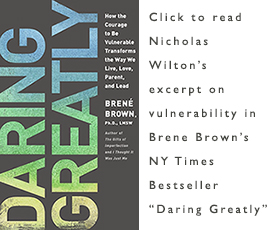When I was a in high school I took a stained glass class at a local art store. The first project was to make a Tiffany style lampshade. The pattern was basically a pansy repeating floral motif. The instructions said that I could choose any color of glass I wanted. Seeing as how I was going to be the one doing all the work, and probably going to be the one to live and look at the project for years to come, I thought this seemed fair. The lampshade turned out ok but took an inordinate amount of time and actually ended up looking a lot like the picture on the lampshade kit box. All that work, and it just seemed like something someone else had made. Sure I had chosen the colors of glass but it was somehow not enough. My next project turned out much better. I made my design from a Time Magazine cover illustration of Mother Teresa(illustrated by Bob Peak). I redrew all the shapes of her face into ones that I knew I could cut out of glass. This project ended up having literally several hundred pieces in it. I remember having a high school party at my house and several beer-toting kids wandered into my bedroom and saw this half finished project on my table. I never talked too much about art with anyone –for me at that age it wasn’t something to be particularly proud of, but rather something that I just did privately… A somewhat secret pastime that filled some internal urge I couldn’t shake.
I remember these kids looked at this half finished nun’s portrait emerging on my worktable next to a gumball machine I had just gotten for my 14th birthday and asked incredulously “Who is this!?” Mother Teresa I confidently shot back, happy that I had read the article inside the magazine so I actually knew her name. They both looked at me and then each other and I could tell they were kind of thinking, “who is this guy? Do we know him like we thought we did?” Many years later I can, of course, see why these kids felt estranged. What high school kid makes stained glass windows of nuns?
What they didn’t understand was the reason I chose her visage to toil away on all through 9th grade year wasn’t because I admired her kindness or that I was particularly spiritual or that I even knew who she was – I made a stained glass window out of her face because it was incredibly lined and wrinkled from the Indian sun and as a result was already perfectly fractured into small pieces tailor-made for an intricate stained glass window.
Regardless, I eventually finished this project, but it took all of 9th grade. I felt better about this one but it still looked a lot like the illustration of Mother Teresa I had copied from the cover of the Time magazine. I felt like I couldn’t really sign my name without also adding a footnote that acknowledged the guy who had made the drawing in the first place. About a year later I took a workshop in glass design from the artist Narcissus Quagliata. During the workshop he had us go to the back of the studio and from the bins of glass there, choose a broken piece that we liked. I selected a rather large shape that sort of resembled a leaf with a bite taken out of it. Then he said, “Now make a design using this shape. I repeated my shape by tracing it and ended up with a kind of floral abstract design. It was the first thing I had ever made without looking at something else.
When I finished the window I held it up to the light and I was struck by how familiar it seemed to me even though I had never seen something quite like it before. It felt oddly familiar. I didn’t understand it at the time but it would be this feeling of familiarity that would end up accompanying almost all future artwork that I made that was more personal.
I remember my Father, who was also an artist but worked as a rather opinionated creative director for his own advertising agency, remarked one morning over the breakfast table, that in fact of all the things I had ever made he particularly liked this made up, floral, stained glass window because nothing like it existed in the world already. It was brand new. It had never been seen before. Of course, like all kids, we just want desperately to be seen by our parents. Even though this was about my artwork, I could immediately draw the line to me. I knew in an instant that this kind of artwork somehow made myself more easily seen. And that felt good. I had contributed something. Something that restated myself and my father, who rarely handed out compliments, had recognized it’s value and in doing so had acknowledged mine.
I learned that day something about the value of originality. I recognized not only the pleasure of making work that feels more like myself, but also saw how it ended up being of particular value to everyone else too. It allowed others to see some small corner of their world in a brand new way.
This is how I began to make sense of originality in not just art but in all facets of my life. I am curious and wonder how others first discovered and experienced their own originality?
With Gratitude,
Nicholas
PS – please do share your thoughts in the comments below.



